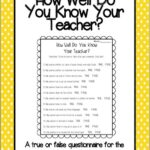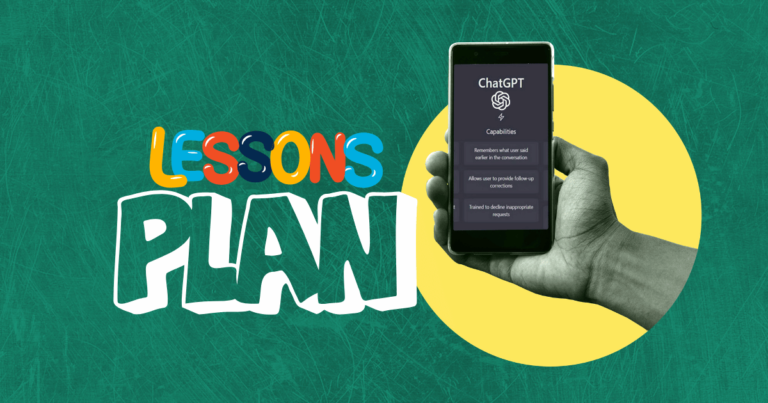Planning your lessons for the entire year might sound overwhelming, but with the help of ChatGPT, it’s not only possible but also incredibly efficient. In this guide, I’ll walk you through how I created my yearly lesson plan for free using ChatGPT, step by step.
Why Use AI for Lesson Planning?
Artificial Intelligence has revolutionized many aspects of our lives, and education is no exception. By using AI tools like ChatGPT, teachers can save time, reduce stress, and ensure their lesson plans are comprehensive and engaging. Here’s how I did it.
Step 1: Set Clear Objectives
Before diving into ChatGPT, I first outlined the goals I wanted to achieve for the school year. What are the key skills and knowledge my students need to acquire? By having a clear vision, I could instruct ChatGPT to focus on specific areas, ensuring the lesson plan aligned with my educational objectives.
Tips:
- Define your subject focus and grade level.
- Identify any key themes or topics that need special attention.
- Determine the balance between different types of activities (lectures, group work, assessments).
Step 2: Break Down the Year into Units
Once I had my objectives, I broke down the school year into units or themes. This division helped me organize the lessons more effectively. I provided this structure to ChatGPT, allowing the AI to generate content tailored to each unit.
Tips:
- Divide the year into manageable segments (e.g., quarters or semesters).
- Assign a theme or focus for each segment.
Step 3: Inputting Your Requirements into ChatGPT
With my framework in hand, I began using ChatGPT to create specific lesson plans. I gave clear instructions, such as the subject, grade level, and desired outcomes for each unit. ChatGPT then generated detailed plans, including lesson objectives, activities, and assessment ideas.
Example Prompt:
“Create a 4-week lesson plan for 5th-grade science on ecosystems, including hands-on activities and assessment methods.”
Step 4: Review and Customize
While ChatGPT provided an excellent foundation, it’s important to review and customize the generated lesson plans. I made adjustments to ensure the content matched my teaching style and my students’ needs.
Tips:
- Review the language and terminology to ensure it’s appropriate for your students.
- Add or modify activities based on the resources available in your classroom.
Step 5: Organize and Save Your Plans
After finalizing the lesson plans, I organized them into a yearly overview. This overview included the objectives for each unit, the weekly breakdown of lessons, and any key dates for assessments or projects. I saved these documents for easy access throughout the year.
Tips:
- Use a digital tool like Google Drive or Dropbox to store your lesson plans for easy access.
- Create a calendar with deadlines and key milestones.
Step 6: Continuous Improvement
One of the best things about using AI is that it’s not a one-time effort. Throughout the year, I revisited ChatGPT to adjust my plans as needed. Whether I needed to reinforce certain topics or adapt to my students’ progress, ChatGPT was a helpful tool in keeping my lesson plans dynamic and responsive.
Tips:
- Regularly check in with ChatGPT to refine your lesson plans.
- Stay flexible and open to making changes based on classroom experiences.
Conclusion
Creating a yearly lesson plan with ChatGPT is not only free but also a highly efficient process. By following these steps, I was able to craft a comprehensive and flexible plan that supported my teaching goals throughout the year. With AI as a tool, teachers can focus more on engaging with students and less on administrative tasks. Give it a try, and see how it can transform your lesson planning process!
Lesson Planning with ChatGPT: Essential Prompts for American Teachers
Creating effective lesson plans is a crucial part of teaching, especially within the American education system, where standards and student engagement are paramount. Here are 10 essential prompts tailored to meet the needs of teachers across various subjects and grade levels.
General Math Lesson Plan
Prompt:
"Create a 4-week lesson plan for 3rd-grade math focused on multiplication and division. Include daily lesson objectives, interactive activities, and assessment methods for each week."
Thematic Unit for English Literature
Prompt:
"Develop a 3-week unit plan for 8th-grade English centered around 'To Kill a Mockingbird.' Include reading assignments, group discussions, writing prompts, and a final project."
Interactive Science Lesson Plan
Prompt:
"Design a 6-week lesson plan for 5th-grade science on the Solar System. Include hands-on activities, multimedia resources, and quizzes to reinforce learning objectives."
History Lesson Plan with Assessments
Prompt:
"Create a 2-week lesson plan for 10th-grade history covering the American Civil War. Include formative and summative assessments, class debates, and essay assignments."
Project-Based Learning in Social Studies
Prompt:
"Develop a 4-week project-based lesson plan for 7th-grade social studies on 'Immigration in the United States.' Include research assignments, group presentations, and a final report."
STEM Integrated Lesson Plan
Prompt:
"Create an 8-week STEM lesson plan for 6th graders that integrates science, technology, engineering, and math. Focus on a hands-on project that requires students to build a simple machine using everyday materials."
Reading Comprehension and Analysis
Prompt:
"Develop a 5-week lesson plan for 4th-grade English focused on reading comprehension and literary analysis. Use a mix of fiction and non-fiction texts, and include vocabulary exercises, comprehension questions, and group discussions."
Civics and Government Unit Plan
Prompt:
"Create a 3-week unit plan for 11th-grade government class focused on the U.S. Constitution. Include lessons on the Bill of Rights, Supreme Court case studies, and a mock trial as a final project."
Health and Wellness Education
Prompt:
"Design a 4-week health education lesson plan for 9th graders covering nutrition, exercise, mental health, and the impact of substance abuse. Include interactive activities, guest speaker sessions, and a final reflective essay."
Technology Integration in the Classroom
Prompt:
"Develop a 6-week lesson plan for middle school students that integrates technology into various subjects. Focus on using tools like Google Classroom, educational apps, and online research to enhance learning outcomes."


